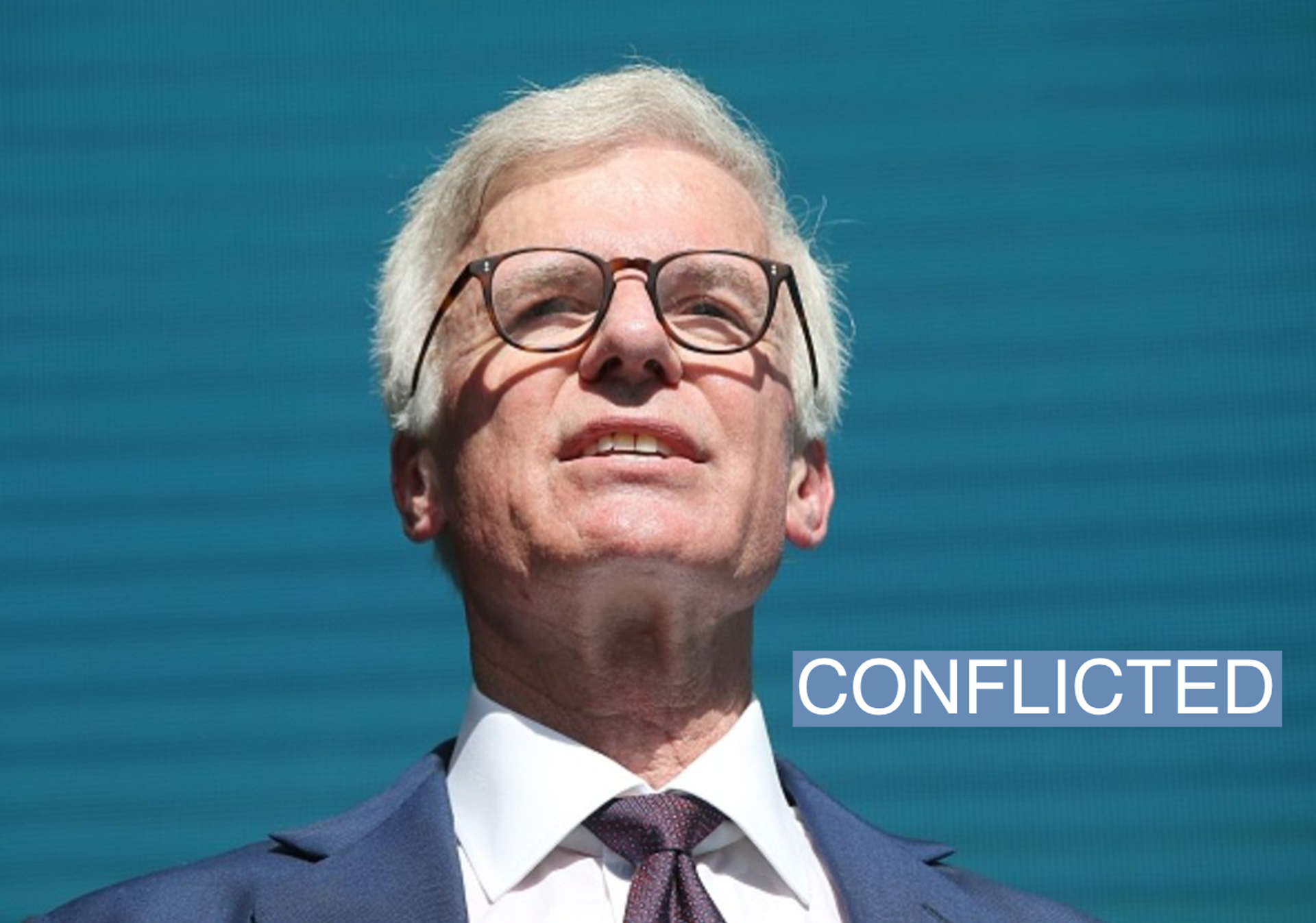The News
On Friday, February 24, four Washington Post executives crossed town to meet Republican National Committee Chair Ronna McDaniel to discuss hosting a Republican presidential debate.
It’s a complicated subject because Republicans often demonize outlets like the Post, and because the Post and other mainstream outlets will likely refuse to partner with Fox News, Republican voters’ preferred outlet. But the morning meeting was constructive, and nobody issued ultimatums.
Then, as it drew to a close, Post Publisher Fred Ryan asked his colleagues, editor-in-chief Sally Buzbee, deputy national editor Phil Rucker, and chief communications officer Kathy Baird, to leave and meet him in the lobby.
Then he began a second meeting with the Republicans on the same subject, but in a different role: Chairman of the Board of the Ronald Reagan Presidential Library Foundation.
The library, in Simi Valley, Ca., is a favored site for Republican debates. Ryan, in 2007, used his deep connections to Nancy Reagan to help the nascent site Politico secure a debate there. (That was 1,000 years ago: the broadcast partner was MSNBC).
Ryan has told colleagues he’ll recuse himself from the library’s decision-making this year. But the perception of his divided loyalties on such a high-stakes project has created a wave of quiet alarm at the top of the Post.
Ben’s view
Ryan is navigating a true conflict of interest. The Reagan Library is networks’ favored location, and Fox is the dominant television outlet for Republicans. But it’s unlikely that the Washington Post would co-host a debate with Fox, particularly after weeks of revelations about why it broadcast falsehoods about the 2020 election. So the library will likely have to deny the location either to Fox or to the Post, and Ryan’s interests in his two jobs simply may not be the same.
Ryan’s embattled status at the Post makes that conflict trickier. The company is in the throes of its biggest crisis since Jeff Bezos bought it in 2013. The Post is fumbling toward a new strategy after the dream of transforming itself into a tech company ran aground, and it is trying to stabilize its audience after the wave of interest in its formidable, swarming coverage of President Donald Trump receded.
Ryan has become the face both of the shaky corporate strategy and of the newsroom’s anger at attempts to cut costs amid declining subscriptions. He’s appeared at times to be at odds with his hand-picked editor-in-chief, Buzbee, who Semafor reported has mused publicly about resigning.
The Republican debate would be a prize for the Post, and for Bezos’s and Ryan’s drive to restore the publication’s brand as a bipartisan Washington institution after a period of partisan polarization. And three Posties familiar with the effort said they’re optimistic they’ll land a debate. If Ryan delivers a Reagan Library site for the Post and a television partner other than Fox News, it could help stabilize his newsroom standing.
But even senior Post employees have told colleagues they’re unsure of Ryan’s role in the debate process, and were surprised by his parallel, private meeting with the RNC, though some said they sympathized with the difficult situation in which he finds himself. (One other person faces a similar conflict: Former House Speaker Paul Ryan sits on the boards of both Fox and the Reagan Library.)
Baird, the Post’s Chief Communications Officer, said Ryan was unavailable for comment but that the Post has “expressed no limitations on location and would be enthusiastic about participating in the debates at any of the locations which have been traditional venues in the past.”
The View From The RNC
Just as news organizations attempt to restore their bipartisan credentials, the Republican National Committee is courting them in an attempt to pull its own band back from the fringe. That same week, the RNC met with broadcasters ABC, NBC, and NewsNation, my colleague Max Tani reports.
“There are plenty of Republicans who consume their news just from the major networks,” David Bossie, the chairman of the party’s debate committee, told the New York Times. “That’s why we have a broader outreach.”
Room for Disagreement
Republicans may regret broadcasting their debates to swing voters. If “the 2024 GOP contest quickly devolves into a cage match between Donald Trump and Ron DeSantis, all the rules in the world may not keep the debate from broadcasting the darker sentiments of the Republican Party into many millions of households like a thunderbolt from hell,” Ed Kilgore wrote in New York Magazine.
Notable
- Alarm bells have been ringing on at the Post’s K Street headquarters at least since The Times’s Ben Mullin and Katie Robertson wrote last August that the Post was losing money, losing subscriptions, and contemplating a set of acquisitions that make no sense or are definitely not for sale, or both, including The Guardian and The Economist.
- After Ryan pushed for layoffs last December — and the newsroom pushed back — Politico columnist Jack Shafer offered this advice: “The only time a publisher should want to be the face of the franchise is when he owns it. But Ryan is only a well-paid employee.”
- The Post’s core business problem, wrote Puck’s Dylan Byers, is that “when politics and policy and national security is not the national story du jour, there’s not a whole lot left to speak of, unless you’re a Commanders fan.”
